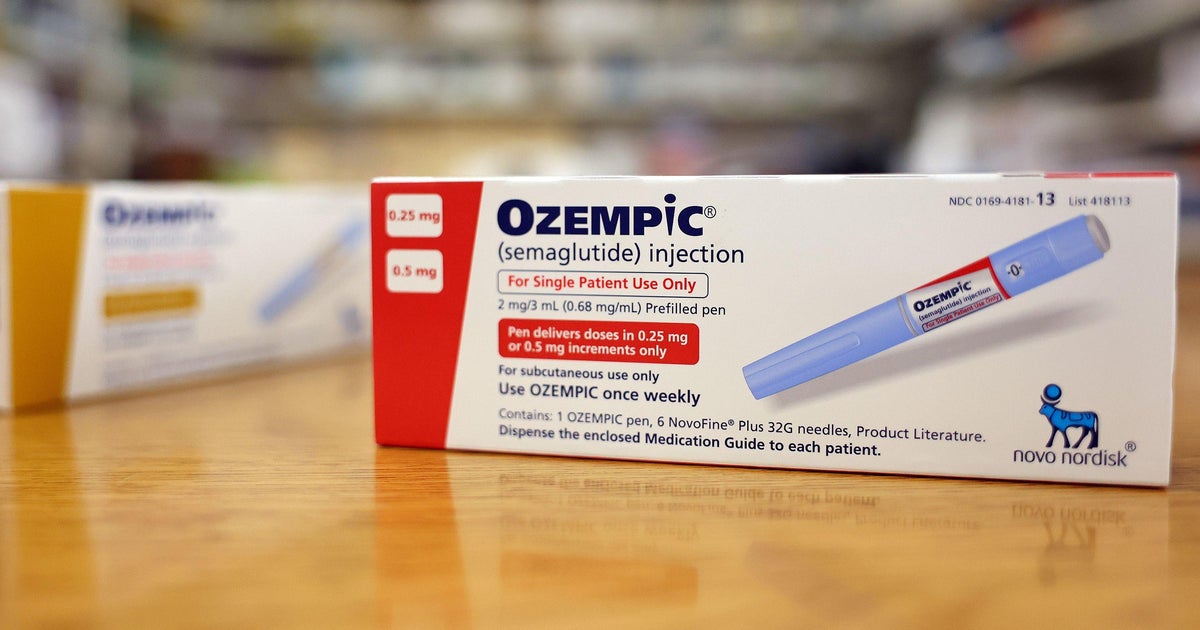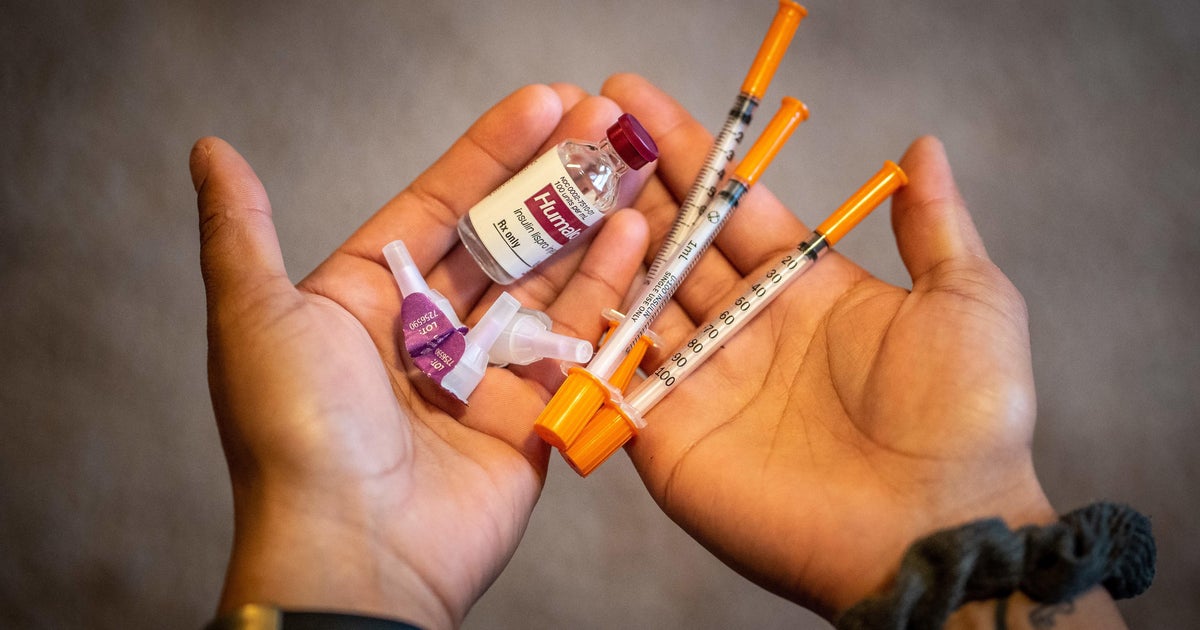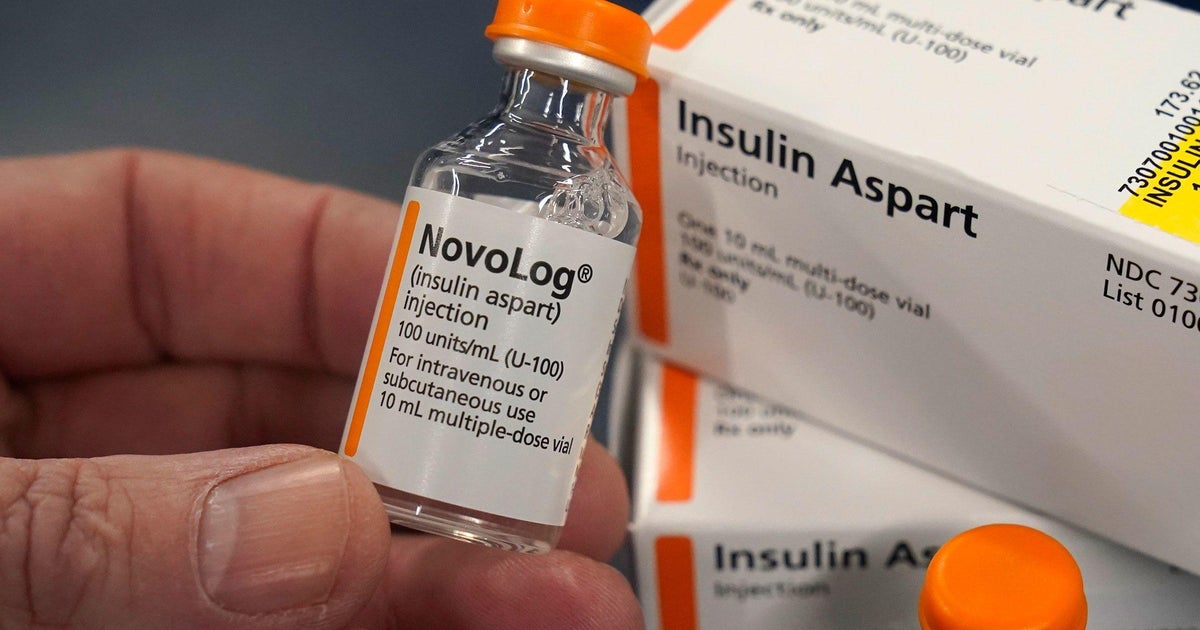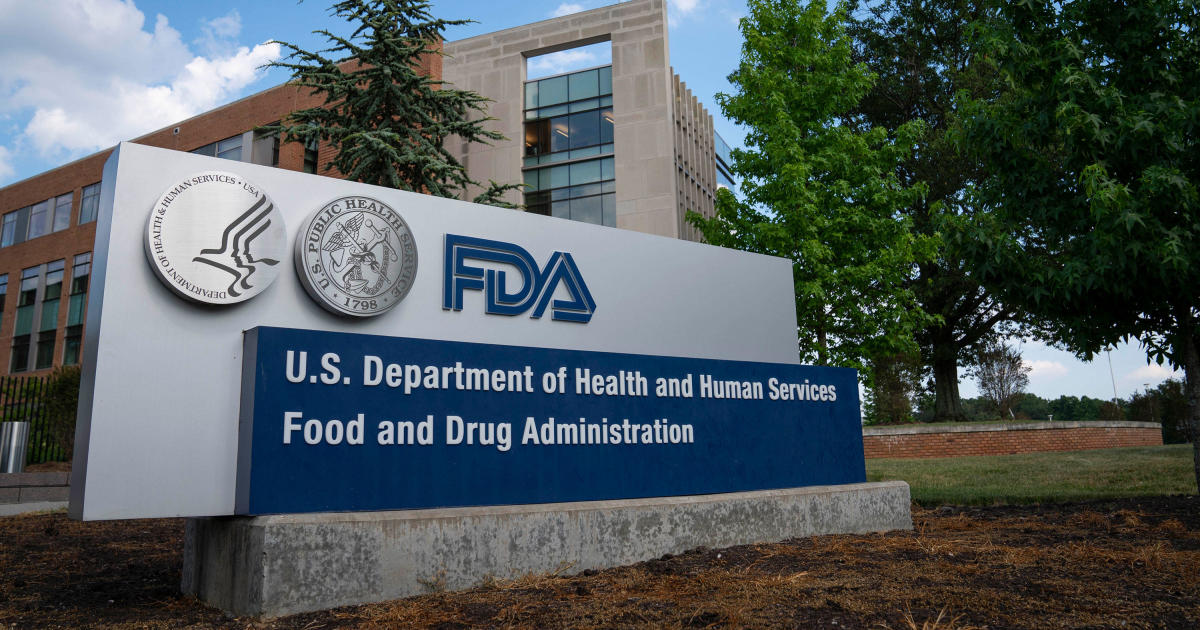CBS News
Drugmakers hiking prices for more than 700 medications, including Ozempic and Mounjaro

Pharmaceutical companies are hiking prices for more than 700 medications, including popular weight-loss drugs Ozempic and Mounjaro, industry research shows.
The average price increase at year start was about about 4.5%, the analysis from 46 Brooklyn found. That represents a slightly slower pace compared with the five prior years, when drug prices rose about 5% each year on average, the data shows.
Among the noteworthy increases are Ozempic and Mounjaro, two drugs that belong to a class of medications called GLP-1 agonists. While these drugs are designed to help diabetics regulate their blood sugar, they’ve also been found to be effective weight-loss drugs, prompting non-diabetics to seek out the drugs in order to slim down. As a result, these drugs have been in greater demand, leading to shortages.
The price of Ozempic, which is manufactured by Novo Nordisk, rose 3.5% to $984.29 for a month’s supply, while Eli Lilly’s Mounjaro rose 4.5% to about $1,000 for a month’s worth of the medication, the 46 Brooklyn data shows.
Eli Lilly didn’t immediately return a request for comment. In a statement to CBS MoneyWatch, Novo Nordisk said that it “increases the list price of some of our medicines each year in response to changes in the health care system, market conditions and the impact of inflation.”
Prices are increasing this year for many other widely used drugs:
- Autoimmune disease medication Enbrel rose 5%
- Pain medication Oxycontin rose 9%
- Blood thinner Plavix rose 4.7%
- Antidepressant Wellbutrin rose 9.9%
“Technically, most brand prescription drug list price increases occur in either January or July each year, but the greatest number take place in January (and thus, January gets all the attention),” 46 Brooklyn wrote in a blog post about the drug increases. “By our counts, since 2018, more than 60% of all brand drug list price increases that occur throughout the course of each year are implemented in the month of January.”
46 Brooklyn’s analysis may not reflect what a patient ultimately pays for a drug. Their analysis is based on the wholesale acquisition cost, which is the price that drugmakers charge to wholesalers that distribute the drugs to pharmacies. Patients may pay less due to insurance coverage as well as rebates and other discounts.
Novo Nordisk said its list price isn’t representative of what most insured patients pay out of pocket. “That’s because after we set the list price, we negotiate with the companies that pay for our medicines (called payers) to ensure our products remain on their formularies so patients have access to our medicines,” the company said. “These payers then work directly with health insurance companies to set prices and co-pay amounts.”
Where drug prices are dropping
Not all medications saw price hikes, with the analysis finding that about two dozen medications dropped sharply in price at year start, including some popular insulin products. The high cost of insulin has drawn attention from the Biden administration and health policy experts, with the Human Rights Watch terming its pricing in the U.S. as a human rights violation.
The decline in insulin prices comes after Medicare, the insurance program for people 65 and older, capped the monthly price of insulin at $35. That prompted some drugmakers to slash the cost of insulin for a broader group of patients. The price of Novo Nordisk insulin products, sold under the Novolog brand name, declined 75% compared with a year earlier, the analysis found.
Other medications that saw price cuts include:
- Erectile dysfunction drug Cialis dropped 19%
- Antidepressant Prozac declined 18%
- Chronic obstructive pulmonary disease medication Advair declined 22% to 60%, depending on the formulation
While the decreases impact a small number of drugs compared with the hundreds that saw price hikes, they are nevertheless “truly remarkable from a historical perspective,” 46 Brooklyn noted.
“This phenomenon is particularly noteworthy due to the nature of the drugs that underwent decreases, primarily comprising historically high-utilization products such as insulins, asthma/COPD inhalers, and central nervous system (CNS) drugs,” the group noted.
CBS News
One year after Oct. 7 attack, the toll on civilians remains high

Watch CBS News
Be the first to know
Get browser notifications for breaking news, live events, and exclusive reporting.
CBS News
Open: This is “Face the Nation with Margaret Brennan,” Oct. 6, 2024

Watch CBS News
Be the first to know
Get browser notifications for breaking news, live events, and exclusive reporting.
CBS News
Kamala Harris will speak with “60 Minutes” tomorrow. Here’s what to know for the interview.

Voters will get the chance to hear from Vice President Kamala Harris on Monday as she presents her case for why she should be president in a “60 Minutes” election special.
For decades, “60 Minutes” has featured both Republican and Democratic nominees for presidents, but this year, former President Donald Trump backed out after previously indicating he would be on the show. Correspondent Scott Pelley, who’d been set to interview Trump, will instead travel to Arizona’s Maricopa County, home to more than 60% of Arizona’s voters and a critical battleground in a key swing state.
One thing is certain about the election; with the U.S. deeply involved in both the wars in Ukraine and the Middle East, whoever wins on Nov. 5 will become a wartime president.
What Harris will discuss
Israel’s war started one year ago after Hamas launched a surprise terror attack and correspondent Bill Whitaker will discuss the ongoing war with Harris.
Harris will also discuss the economy, immigration, her record as vice president and the differences between herself and Trump.
Democratic vice presidential candidate Gov. Tim Walz will also appear.
Whitaker joined the Democratic ticket on the campaign trail this week to gain insight into their platform’s priorities and values, and what the candidates believe voters should know.
Why Trump pulled out of the “60 Minutes” interview
Leading up to the candidate hour, Trump, through campaign spokespeople, was the first candidate to accept the “60 Minutes” request to be interviewed for the special, according to CBS News. It had been agreed that both candidates would receive equal time during the broadcast.
Trump last sat down with 60 Minutes in 2020. He walked out during the interview with Lesley Stahl. Trump referenced the incident on Tuesday night at a Milwaukee press conference when asked about his decision not to participate in the Oct. 7 “60 Minutes” election special.
“Well, right now, I went to – they came to me and would like me to do an interview, but first I want to get an apology, because the last time I did an interview with them, if you remember, they challenged me on the computer,” Trump said. “They said the ‘laptop from hell’ was from Russia, and I said it wasn’t from Russia. It was from Hunter, and I never got an apology, so I’m sort of waiting. I’d love to do ’60 Minutes.’ I do everything.”
The Republican nominee for president emphasized that he felt he was owed an apology from “60 Minutes.”
“Let’s see if they do it. I wouldn’t mind doing 60,” Trump continued. “I’ve done ’60 Minutes’ a lot.”
In a statement on Tuesday, Trump campaign communications director Steven Cheung said that Trump’s team had not agreed to an interview.
“Fake News,” Cheung said in a post on X. “60 Minutes begged for an interview, even after they were caught lying about Hunter Biden’s laptop back in 2020. There were initial discussions, but nothing was ever scheduled or locked in. They also insisted on doing live fact checking, which is unprecedented.”
Previous Trump, Harris appearances on 60 Minutes
Trump previously sat down with “60 Minutes'” Mike Wallace in 1985, Pelley in 2015 and Lesley Stahl twice in 2016, first in July of that year and then again in November of 2016. He also spoke with Stahl again in 2018 and 2020.
Harris previously sat down with Whitaker last year. She also was interviewed by Norah O’Donnell, “CBS Evening News” anchor and “60 Minutes” contributing correspondent, in 2020.








